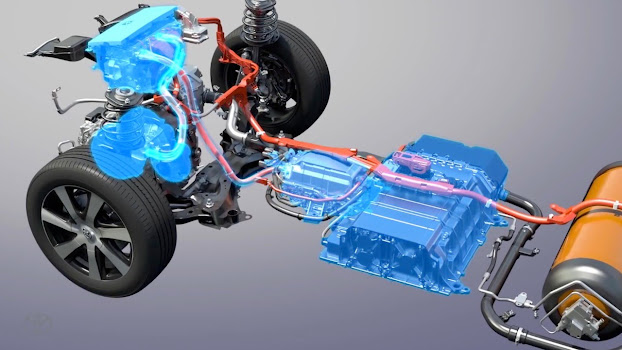Hydrogen Fuel Cell Vehicle Market Is Estimated To Witness High Growth Owing To Increasing Demand for Sustainable Transportation
 |
| Hydrogen Fuel Cell Vehicle Market |
Market
Overview:
Hydrogen fuel cell vehicles use fuel cells to convert hydrogen into
electricity, producing zero emissions and offering an alternative to internal
combustion engine vehicles. These vehicles have several advantages, including a
longer driving range, faster refueling time, and zero emissions, making them a
sustainable transportation solution. With increasing concerns over
environmental pollution and the need to reduce greenhouse gas emissions, the
demand for hydrogen fuel cell vehicles is expected to grow.
Market Key
Trends:
The key trend driving the hydrogen fuel cell vehicle market is the increasing
government initiatives and investments in hydrogen infrastructure development.
Governments across the globe are recognizing the potential of hydrogen fuel
cell vehicles in reducing carbon emissions and achieving sustainability goals.
As a result, they are implementing various policies, incentives, and funding
programs to promote the adoption of these vehicles and support the development
of hydrogen refueling infrastructure. For example, countries like Japan, South
Korea, Germany, and the United States have announced ambitious plans to invest
in hydrogen infrastructure and increase the number of hydrogen fueling
stations. Such government initiatives are expected to drive the growth of the
hydrogen fuel cell vehicle market in the coming years.
Overall, the hydrogen fuel cell vehicle market is expected to witness
significant growth due to the increasing demand for sustainable transportation
options and the support from government initiatives for hydrogen infrastructure
development.
PEST Analysis:
Political: The political factors influencing the hydrogen fuel cell vehicle
market include government regulations and policies regarding emissions and
environmental sustainability. For instance, many governments are implementing
stricter emission standards and offering incentives and subsidies for the
adoption of clean and green vehicles.
Economic: The economic factors impacting the market include the cost of
manufacturing hydrogen fuel cell vehicles and the availability of
infrastructure for hydrogen fueling stations. The adoption of this technology
is also influenced by fuel prices and the overall economic stability of the
countries.
Social: Social factors that affect the market include the growing awareness and
concern for environmental issues. As consumers become more conscious about
reducing their carbon footprint, there is an increased demand for eco-friendly
transportation options such as hydrogen fuel cell vehicles.
Technological: Technological advancements play a crucial role in the growth of
the hydrogen fuel cell vehicle market. Improvements in fuel cell technology,
such as increased efficiency, greater durability, and reduced costs, are
driving the adoption of these vehicles. Additionally, advancements in hydrogen
production and storage technologies are further supporting the market growth.
Key Takeaways:
The Global
Hydrogen Fuel Cell Vehicle Market Demand is expected to witness high
growth, exhibiting a CAGR of 54.3%
over the forecast period from 2023 to
2030. This growth can be attributed to the increasing emphasis on reducing
greenhouse gas emissions and the shift towards clean transportation
alternatives. Furthermore, government initiatives promoting sustainable
mobility and investments in hydrogen infrastructure are also driving the market
growth.
In terms of regional analysis, Asia Pacific is expected to emerge as the
fastest growing and dominating region in the hydrogen fuel cell vehicle market.
The region is witnessing significant investments in hydrogen infrastructure,
with countries like Japan and South Korea leading the adoption of
hydrogen-powered vehicles. Additionally, the presence of major automobile manufacturers
in the region, along with favorable government policies, is contributing to the
growth of the market in Asia Pacific.
Key players operating in the hydrogen fuel cell vehicle market include Audi AG,
Ballard Power Systems Inc., BMW Group, Daimler AG, General Motors Company,
Honda Motor Co., Ltd., and Hyundai Motor Group. These companies are actively
involved in research and development activities to improve fuel cell technology
and enhance the performance of hydrogen fuel cell vehicles. They are also
collaborating with government organizations and other stakeholders to establish
a robust hydrogen infrastructure network.



Comments
Post a Comment